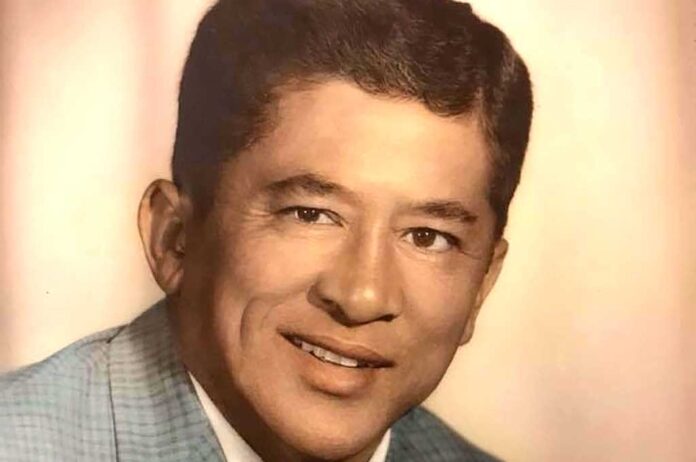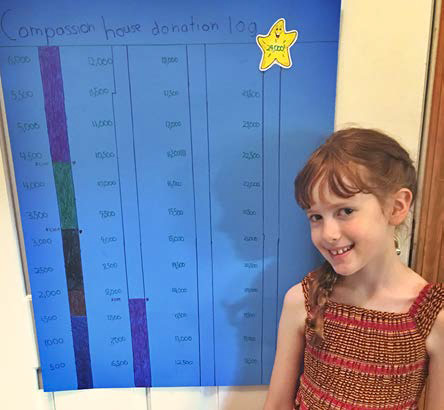On December 7, 1941 – the day the Japanese attacked Pearl Harbor – Joseph Sequito was a typical Hawaiian teenager; surfing, scuba diving, and attending school. He lived in Honolulu, a few miles from Pearl Harbor. He had gone to Mass at 7am that morning, walking to and back from the church located a couple of blocks from his home. When he returned, his father was shaving in the bathroom while listening to the radio. The news of the bombing startled his family. Joseph asked his father if the radio was talking about maneuvers, training exercises by U.S. military forces. Mountains between Honolulu and Pearl Harbor had hidden the smoke from the attack. The Japanese planes did not bother anyone because military planes flying overhead were a regular occurrence. His father said, “Joseph, I want you to take our car and go to Pearl Harbor and help those sailor boys.” But his mother, not knowing if the attack was continuing, urged caution, she was afraid he would be killed. So he did not go. Alarm sirens were going off all over the island, creating chaos fear and confusion. The Japanese had already attacked Australia, Solomon Islands and Midway. Was the United States next; were they taking over the whole world? Three years later, 1944, at age 18, Joseph was drafted into the Army. He said that by then the U.S. military was getting short on fighting men
Few, if any people, knew Joseph’s background when he and his wife, Joan, moved to Tualatin. But he soon became a well-liked character, walking around town, sometimes with his wife Joan. They lived in the condo’s across the street from the Heritage Center with easy access to the Juanita Pohl Center. He was short, about 5’6” tall and looked Hawaiian. He rarely talked to anyone but when he did, had a Hawaiian accent. He had a big smile and always wore either a dark colored WWII baseball cap or a VFW garrison hat. When he wanted to make a point, he asked a question and then answered it. Joan, however, was a virtual chatterbox. She liked to talk with everyone. He had great fun at the Summer Concerts on the Commons, dancing with the ladies.
After being drafted, Joseph was sent to Fort Lewis, Washington for basic training where he said he had a hard time adjusting to getting up early in the morning. Also the food was different from what he was used to eating. He had to learn to say “sir” when addressing officers. Then he went to Fort Hood, Texas where he learned how to fight and trained on an M-1 riffle. He explained that the rifle weighs 9 and ½ pounds, and is accurate up to 600 feet. ‘You have to hold it steady and when you shoot it has a strong kickback.’ He did not have much to say about combat other than he was sent to the Philippines, then to Solomon Islands, to Midway and then back to Philippines. He was a rifleman and he said his job was to go into the jungle ahead of the troops, looking for snipers who hid on the tops of coconut trees. They got up there, he explained, by using spikes on their boots. He said, “I learned my rifle was my best friend.” Sometimes he also had to defend himself against enemy ground forces; where he lost his best friend and several of his buddies.
Some of the medals he earned included the Bronze Star, World War II medal, and for what he called expert rifle sharp Shooter (he said he used the Browning Automatic Rifle (BAR), another expert Marksmanship for small rifle) and what he called the good soldier award – Good Conduct Medal. When he returned home after the war, his entire family met him at the pier. They hugged him, kissed him, and gave him a lei and flowers around his neck. There were parades where ‘they cheered for you and threw flowers on you, especially in Honolulu.” He said he went back to school and continued to enjoy all sports.
Joseph was adopted. His mother, Alma, was born on the island of Maui. His father, Lorenzo Elmer Sequito, was born in the Philippine Islands. The family was heavily involved with their local Catholic Church activities. He was athletic throughout his life. He played football ‘without shoes,’ although he did wear shoulder, hip and knee pads and headgear. He felt the helmet took some of the fun away from playing football but his coaches explained it is to protect your head – “because that’s where your brains are.” He also did Judo, Karate and baseball. But his favorite was surfing.
He met his wife on the beach in Waikiki, under a Banyan tree after finishing surfing. He was still wearing his swim suit. She said he started a conversation with her. Then he asked her out. She said she couldn’t go out with him because she didn’t know him. He was convincing when he said “you are talking to me so now you know me”
She was born in Ohio. They married on July 3, 1968. Joseph worked for 34 years as a cable splicer for Hawaiian Electric Company. They came to Oregon in 1990. They later moved to Idaho to be near a granddaughter for support. He has now passed away and his wife is in senior residence care. He attributed his long life to good living; he was still strong when he lived in Tualatin. He never drank beer or smoked. He dedicated his life to God. He survived the horrors of war and knows he was fortunate to live in America. He was a happy man except for one thing, he misses surfing.
Note: Information for this column came from records of an oral interview with Joseph for the Veterans History project for the Tualatin Heritage Center and from my follow-up interview with Joan Sequito.
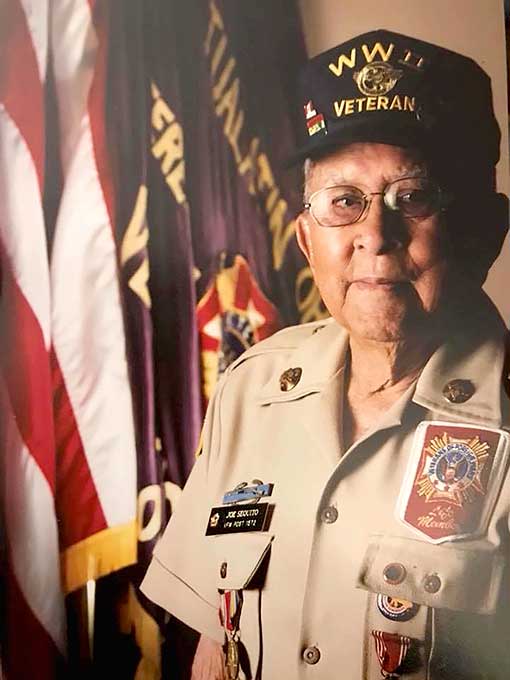
Joseph wearing WWII Veteran ball cap that he was known for. 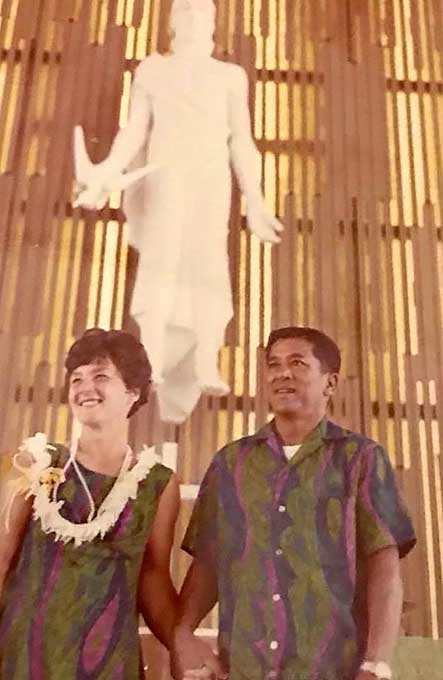
Joseph married Joan Hugger Sequito on July 3, 1968. A beautiful bride in a beautiful Hawaiian church. 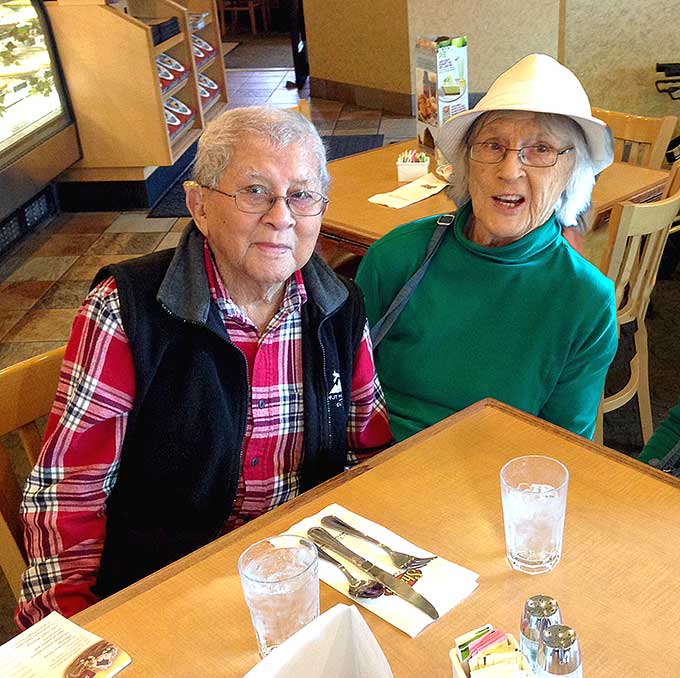
Joseph and Joan preparing for lunch at Juanita Pohl Center. 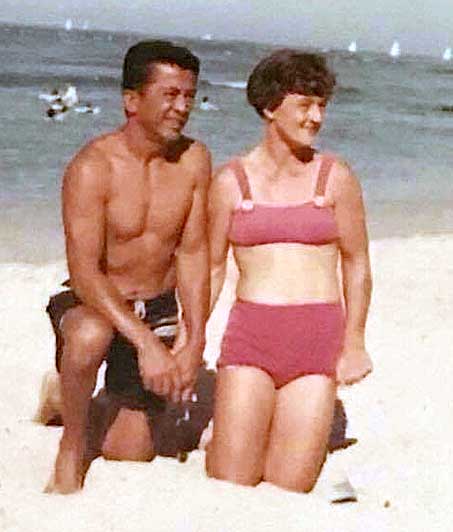
Well-tanned Joseph and wife Joan enjoy sun at favorite beach, Waikiki. 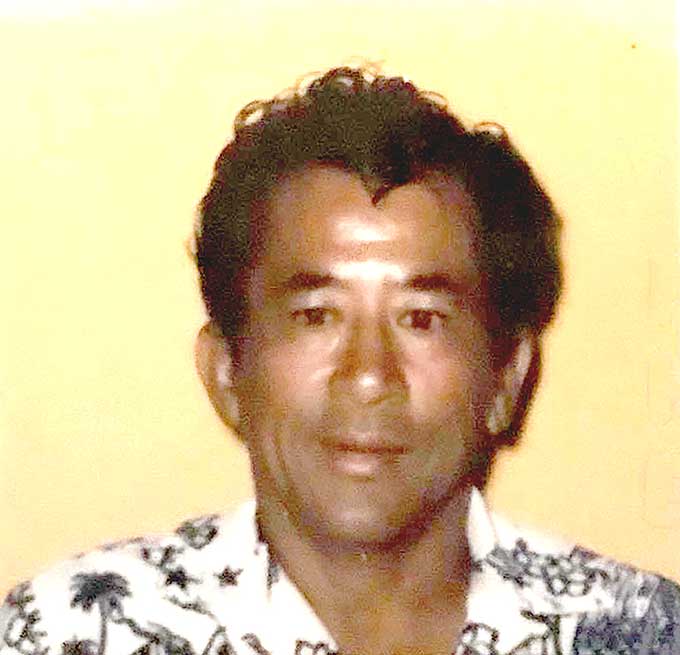
Joseph entering Army. 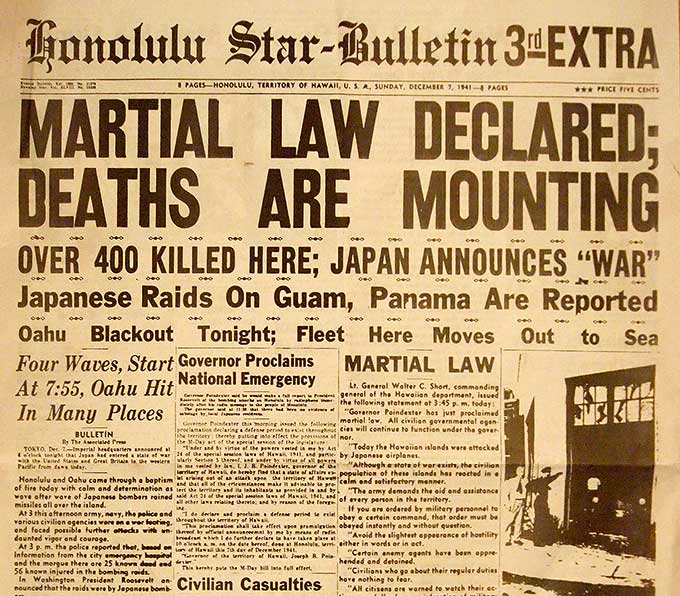
Honolulu Star editions reporting attack on Pearl Harbor.

